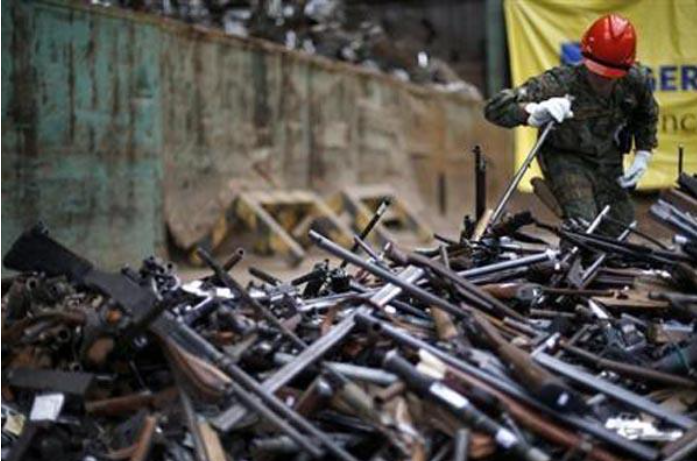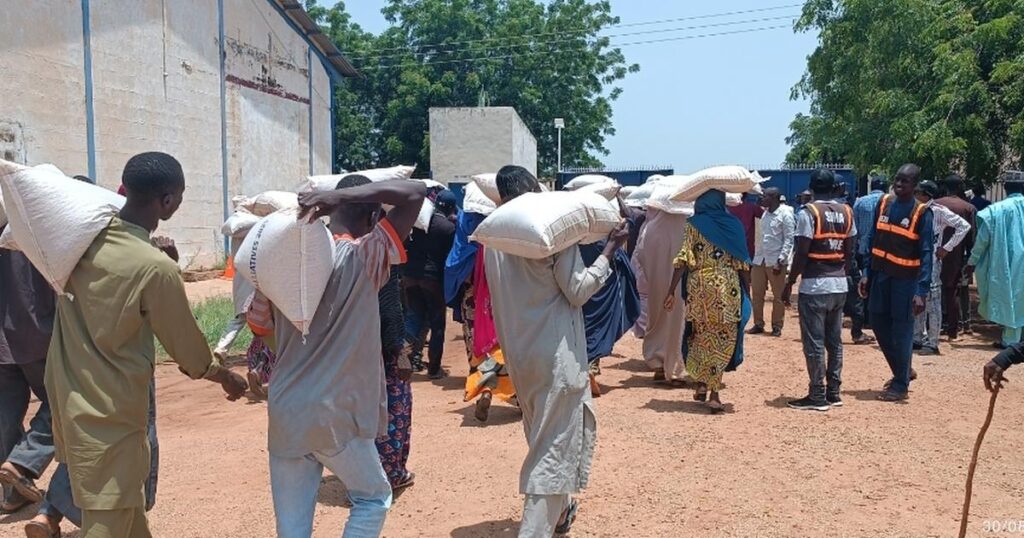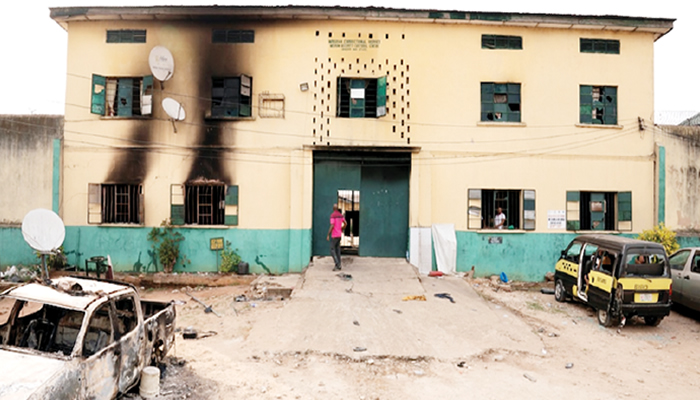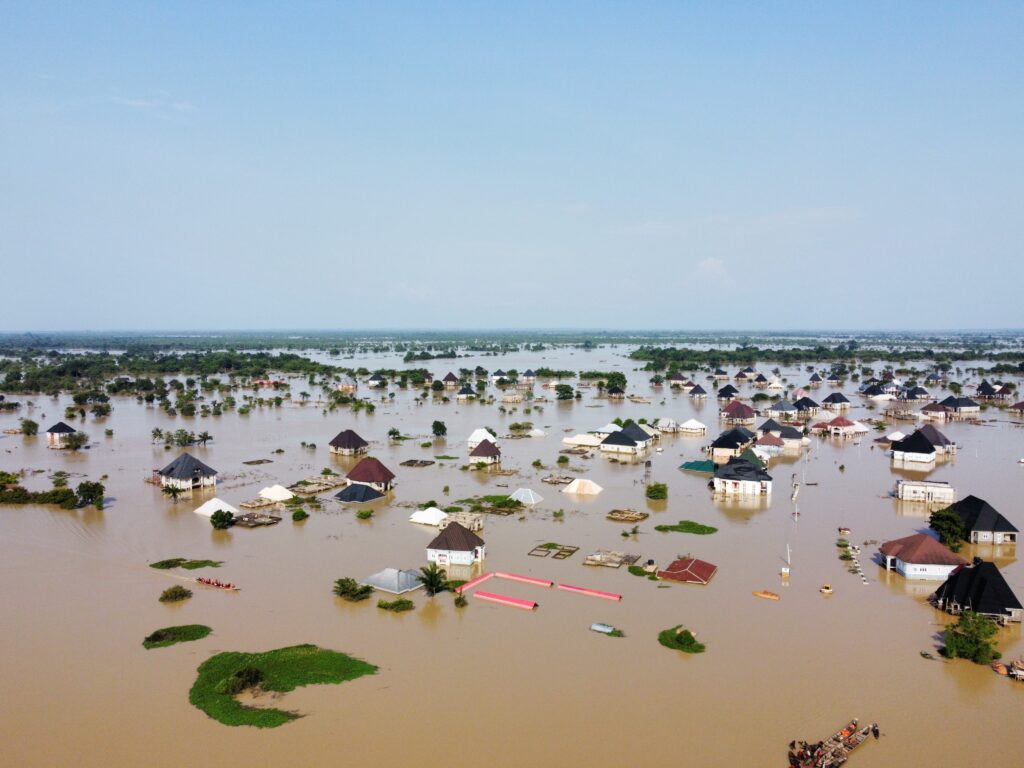Arms control is a critical component of international security, aiming to limit the proliferation and use of weapons that threaten global peace and stability. The proliferation of arms and illicit weapons trafficking present significant challenges to peace, security, and development in Africa. It is estimated that around 30 million small and light weapons (SALW) are found in sub-Saharan Africa and more than 50% of the weapons that proliferate in Africa are used illicitly in trafficking, armed robbery, terrorism and organised crime. As the continent grapples with diverse security threats, from armed conflicts to terrorism and organised crime, modernising arms control mechanisms becomes imperative. Recently, “emerging technologies” especially drones or other unmanned vehicles have tremendously impacted military planning and warfare and are beginning to enhance operations. The most promising will be to make artificial intelligence (AI) in general and machine learning in particular useful in arms control.
In Africa, modernising arms control is paramount to address the continent’s diverse and evolving security challenges. The proliferation of illicit arms fuels conflicts, exacerbates instability and hampers socio-economic development. Africa has witnessed various conflicts, both internal and regional, often fuelled by the illegal flow of arms and weapons. Traditional arms control mechanisms have struggled to keep pace with conflicts’ changing nature and non-state actors’ emergence. States, non-state actors, and individuals now have access to technologies that used to be a part of science fiction.
The African continent faces some challenges in terms of arms control. Weak border controls, porous borders, and corruption facilitate the illicit flow of weapons across African countries. Criminal networks exploit porous borders and regulatory loopholes to traffic arms, exacerbating conflicts and destabilising regions. For example, in the West African region, the proliferation of small arms and light weapons from conflict zones such as Libya has fuelled insurgencies and armed violence in countries like Mali and Niger.
Also, there exists a proliferation of Small Arms and Light Weapons (SALW), which are the primary tools of violence in many African conflicts, fuelling intra-state conflicts, terrorism, and organised crime. The widespread availability of SALW contributes to cycles of violence, undermines governance structures, and hampers peacebuilding efforts. In countries like South Sudan, where decades of conflict have left communities awash with weapons, SALW proliferation continues to hinder peace efforts and exacerbate humanitarian crises.
Weak regulatory frameworks are also a major challenge. Many African countries lack comprehensive arms control legislation and regulatory frameworks, making it challenging to monitor and regulate the flow of weapons effectively. Strengthening national legislation on arms control, enhancing regulatory capacity, and promoting transparency in arms transfers are essential steps toward modernising arms control mechanisms in Africa. For example, countries like Nigeria have implemented measures such as the National Firearms Act to regulate the possession, transfer, and use of firearms, but enforcement remains a challenge due to limited resources and capacity.
In modernising arms control, strengthening regional cooperation plays a crucial role in facilitating arms control efforts in Africa. Strengthening regional cooperation frameworks, such as the African Union (AU) and regional economic communities (RECs), can enhance coordination, information-sharing, and capacity-building initiatives on arms control. Harmonising legal frameworks and standardising procedures across regions can improve the effectiveness of arms control measures. The ECOWAS Convention on Small Arms and Light Weapons, their Ammunition, and Other Related Materials is an example of a regional initiative aimed at addressing SALW proliferation in West Africa.
Effective arms control requires robust monitoring and verification mechanisms to track weapons transfers, detect illicit activities, and ensure compliance with international obligations. Investing in technological solutions, such as satellite imagery, electronic surveillance, and forensic analysis, can enhance monitoring capabilities and facilitate timely response to arms trafficking and proliferation. The UN Register of Conventional Arms and the International Tracing Instrument provide frameworks for monitoring and tracing weapons transfers globally.
Promoting disarmament initiatives and arms reduction measures is essential for mitigating the impacts of armed violence and fostering peace and stability in Africa. Encouraging voluntary disarmament, implementing weapons collection programs, and supporting community-based initiatives can reduce the availability and demand for illicit arms, contributing to long-term peacebuilding efforts. Initiatives such as the UN Programme of Action on Small Arms and Light Weapons provide a framework for international cooperation on disarmament and arms control.
Modernising arms control in Africa necessitates addressing the underlying reasons for proliferation, strengthened regulatory structures, and greater regional collaboration. African countries may alleviate the effects of armed violence, advance peace and security, and support long-term development across the continent by prioritising disarmament, establishing monitoring mechanisms, and encouraging regional cooperation. However, continued political will, international assistance, and concerted action are required to make substantial headway toward modernising arms control on the African continent.



